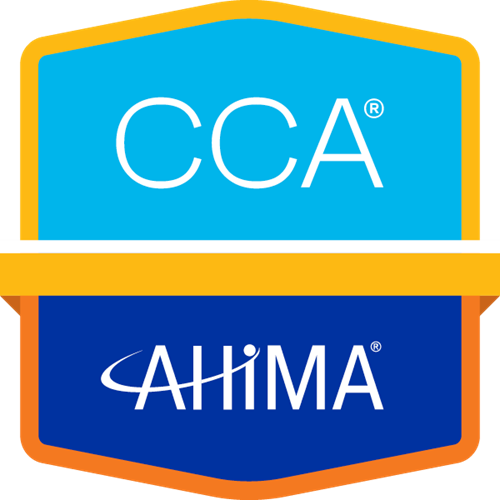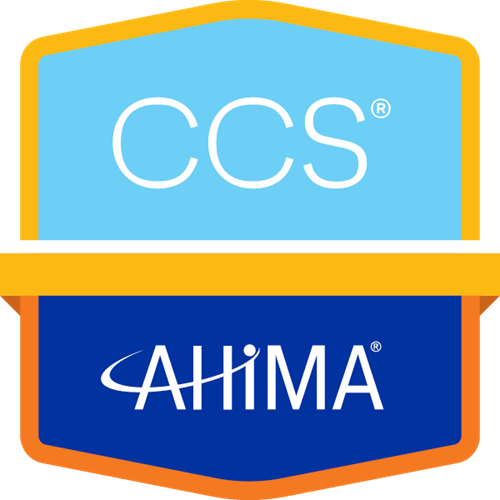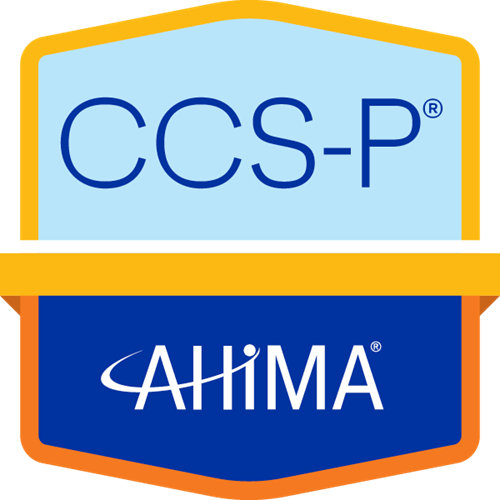What is Medical Coding?
Quality healthcare starts with accurately capturing each patient’s health story—that’s where medical coding professionals make a difference. Coding professionals review health records and assign medical codes that help support important healthcare functions. Every code they enter helps protect and communicate each patient’s unique story.
Medical coding is full of opportunities, whether you’re new to the field or looking to grow your career. As a medical coder, you’re the connection between health information and the success stories that come from great patient care.
Medical Coders Are...


Megan O'Boyle BA
Principal Investigator
Medical Coders Impact Health and Healthcare
Medical codes are the health data building blocks that have the power to change lives. Without a code for a disease, critical tasks such as collecting data for the purpose of developing treatments and cures becomes extremely difficult.
Read the story of medical coder Megan OʼBoyle and her arduous quest in pursuit of reliable and actionable health data to help individuals facing the same rare genetic disease as her daughter in the article Deliverance in the Data.

Careers in Medical Coding
Coding professionals play a vital role in ensuring healthcare providers and researchers have high-quality and timely data. A career in medical coding offers many benefits.
- Quick Turnaround from Education to Certification: Start your career without spending years in higher education or accumulating loans.
- Make an Impact: Save lives by ensuring that data is prompt and accurate - a core part of work that improves patient outcomes.
- Provides Job Flexibility: Work a nine-to-five position at a doctor’s office, an overnight shift in a hospital, or earn a living remotely from the comfort of your own home.
- Job Stability: The Bureau of Labor Statistics projects that employment for medical coders will grow 13% by 2026, far outpacing the average for all occupations, which is just 7%.
Career Planning
Planning and preparation are key to navigating your path to becoming a medical coder. To help guide you, we have created the Career Prep Workbook. Download the Workbook below.
What do coding professionals need to know?
Coding professionals must possess key competencies and knowledge to successfully perform, including:
- Expertise in coding systems such as ICD-10-CM/PCS, CPT, and HCPCS
- Knowledge in medical terminology, disease processes, and pharmacology
- Expertise in health information documentation, data integrity, and data quality
Training for Medical Coders
What job titles do coding professionals have?
Just as there is great variety in healthcare settings, there are a variety of titles and positions for medical coding professionals throughout the healthcare industry.
Typical entry-level medical coding job titles include:
- Hospital Outpatient Coder
- Hospital Inpatient Coder
- Medical Coder
- Medical Billing/Coding Specialist
More advanced job titles include:
- Hospital Coding Manager
- Coding Educator
- Professional Fee (“ProFee”) Coder
- Coding Supervisor
- Coding Auditor
Typical job titles for roles related to coding include:
- Clinical Data Specialist
- Data Quality Manager
- Compliance Specialist
- Clinical Documentation Integrity Specialist
How do I become a coding professional?
Get Certified. There are many ways to enter the medical coding industry. Some enter the coding profession immediately after they leave school. For others, coding is a fulfilling second career. Once you have earned your high-school diploma, you can:
- Complete a certification program
- Complete an associate degree
- Complete a bachelor’s degree
It is recommended for students who complete an associate degree to also obtain the RHIT® credential, and for students who complete a bachelor’s degree to obtain the RHIA® credential. These certification paths, while more involved, open more avenues immediately once certified.
Prepare for the job search
Participating in mentorship programs such as AHIMA M2M Connect, downloading the Career Prep Workbook, volunteering with local healthcare providers, and joining an association like AHIMA can help expand your professional network when it’s time to land your first medical coding job.
Learn more about the knowledge and skills needed to be successful in different roles using our Career Map
Training for Medical Coders
Coding professionals play a vital role in ensuring healthcare providers and researchers have high-quality and timely data. A career in medical coding offers many benefits.
Whether you're a practicing medical coder or a seasoned coding professional looking to showcase your expertise, The American Health Information Management Association® (AHIMA®) offers:
- Annual code updates training
- Certification programs (CCA®, CCS®, and CCS-P® credentials)
- Microcredentials

Free, On-demand Webinar Series
Explore the future of medical coding and build your knowledge of ICD-11 during this free, on-demand webinar series.
Medical Coding Certifications
What are Certifications?
Certifications, such as those offered by AHIMA, assess established knowledge, skills, and competencies. When you complete the rigorous certification process, you earn a credential (represented with letters listed after your name, such as “CCS” or “RHIA”) that validates your expertise in a specific area, such as coding. Earning a credential sets you apart from the crowd when it’s time to apply for roles and gives employers confidence they can count on your commitment and knowledge.
Already know the credential for you? Get started on our Certifications overview page to learn more about the AHIMA certification exams.

Should I Pursue Certification?
If you are just starting your careers or are new to healthcare, earning an AHIMA credential demonstrates to employers that you have achieved proficiency in important competencies and knowledge areas in coding.
If you have been working in healthcare but are new to medical coding, earning a credential will bolster your existing experience and show that you are ready and committed to excel in this new role. If you are already working as a coding professional, earning a credential from AHIMA helps you stand out in an industry that values education and experience by demonstrating your commitment to the ongoing education necessary to remain relevant and lead in the complex and evolving healthcare landscape. You never know where your career might take you. AHIMA credentials can give you a leg up when looking for advancement opportunities or roles in unfamiliar organizations.
Which AHIMA Coding Credential is Right for Me?
AHIMA offers multiple options for those interested in earning a coding credential:
Certified Coding Associate (CCA®):
CCA credential holders have demonstrated coding competency across all healthcare settings.
Certified Coding Specialist (CCS®):
CCS credential holders have demonstrated skills in data quality and accuracy as well as coding proficiency.
Certified Coding Specialist – Physician-based (CCS-P®):
CCS-P credential holders have the distinction of earning a comprehensive physician’s office coding certification.
Resources
Journal of AHIMA is the official publication of the American Health Information Management Association. Coding articles from the Journal cover a wide range of coding-related issues, from important skills for coding professionals to tips on tricky coding situations. Recent titles include:
Coding is an important part of the reimbursement cycle, and it is advantageous for coding professionals to understand the basics of the revenue cycle relevant to their role or area of interest. AHIMA offers several courses. To learn more go the the MyAHIMA Store and click on the Medical Coding & Reimbursement Online category.
AHIMA invites you to explore the future of medical coding and begin building your ICD-11 knowledge today with “The Evolution of ICD-11,” a free webinar series.
The exercises in the Clinical Coding Workout book challenge coding students and professionals alike to develop and maintain the expert skills they need to stay at the top of their coding accuracy game. The book includes over 1,500 practice coding scenarios and exercises.
Build your familiarity with the terminology, structure, and format of the ICD-10-PCS code set with full-color flash cards. The ICD-10-PCS Flash Cards include 55 cards that define the 31 Medical and Surgical Root Operations, the 7 Approaches, and the 17 character values of each of the sections of ICD-10-PCS.
Build Your Coding Community
Connect on Social Media
Reach out to others beginning their careers in coding to compare notes and share tips. Ask a coding professional with years of experience that you admire if they would be willing to meet with you for an informational interview.
Connect with AHIMA on LinkedIn, Facebook, X, and YouTube to keep up with the latest news and engage with fellow health information and coding professionals.
For Members: AHIMA Access
Meet and interact with your fellow health information professionals, our member-only digital community platform. On Access, you can take part in communities centered around your specific interests.
The Coding and Classification community provides updates on coding guidance, and explores innovations and advancements in the coding field.
Not a Member?
Time to Network
Landing that first job can be a challenge. A robust networking strategy can help set you up for success when it’s time to take the step of finding your first official role as a coding professional. For more ideas, check out the Journal of AHIMA article “Navigating Today’s HIM Job Market.”


